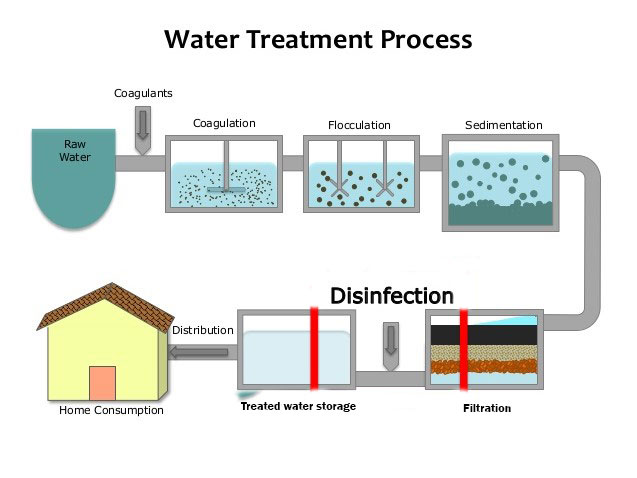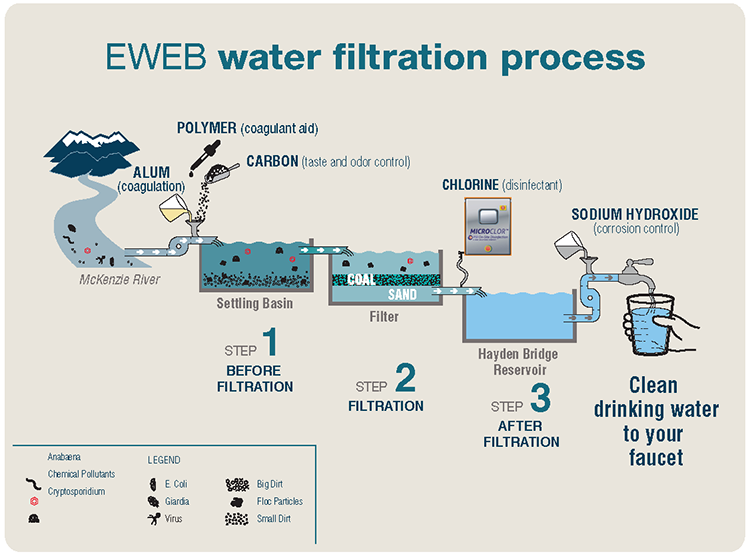Water Technology Startups: Insider Strategies for Identifying High-Growth Ventures
Wiki Article
Discovering Water Technology Startups: How They Reinvent Lasting Solutions
Water Technology start-ups are arising as crucial gamers in the quest for sustainable remedies to worldwide water concerns. These firms take advantage of cutting-edge modern technologies to enhance water efficiency and administration. Their payments attend to pressing difficulties such as deficiency and contamination. In spite of their possibility, they encounter numerous obstacles that can influence their success. Recognizing these dynamics clarifies the future of water sustainability and the duty these startups may play in shaping it.The Relevance of Water Technology in Today's World
As global water deficiency magnifies, the importance of water Technology comes to be increasingly apparent. Water Technology plays an important role in resolving the difficulties posed by raising and reducing fresh water sources demand. It encompasses a wide series of advancements, including advanced purification systems, wastewater treatment innovations, and clever watering options. These improvements not just enhance the effectiveness of water usage yet also promote sustainable practices throughout various markets, including farming, sector, and city advancement.The importance of water Technology extends beyond source administration. It fosters durability against environment change effects, such as droughts and floodings, by providing adaptive options for water preservation and administration. In addition, it sustains public health and wellness by guaranteeing access to risk-free and clean alcohol consumption water. As the globe faces growing water-related challenges, the integration of sophisticated water modern technologies is essential for cultivating sustainable advancement and securing water availability for future generations.
Ingenious Solutions From Water Tech Startups
While typical approaches to water administration have served their function, a new age of water tech startups is revolutionizing the industry with innovative solutions (Water Technology Startups). These business utilize innovative modern technologies to attend to pressing water issues, such as scarcity, contamination, and ineffective distribution. Many startups make use of artificial knowledge and artificial intelligence to enhance water usage and anticipate demand, leading to even more sustainable methodsIn addition, a number of companies concentrate on creating sophisticated filtering systems that remove contaminants and make water risk-free for usage. Others check out decentralized water treatment innovations, enabling communities to manage their water resources much more effectively. Furthermore, some start-ups are pioneering wise irrigation options that minimize water waste in agriculture, promoting ecological conservation.
Case Researches: Effective Water Technology Startups
Numerous water Technology start-ups have arised as leaders in resolving worldwide water difficulties with ingenious strategies. One notable example is Xylem, which focuses on water analytics and clever infrastructure to enhance water usage and lower waste. Their services have been implemented in numerous towns, showing significant enhancements in water management effectiveness.Another successful start-up, Absolutely no Mass Water, has actually developed solar-powered hydropanels that draw out water vapor from the air, offering sustainable drinking water in arid areas. Water Technology Startups. This Technology has actually been released in several nations, ensuring areas have accessibility to clean water
Finally, AquaVenture Holdings operates a diverse portfolio of water-as-a-service options, resolving water deficiency via desalination and wastewater therapy. Their jobs have actually confirmed essential in areas dealing with serious water shortages, showcasing the possibility of cutting-edge water modern technologies to create long lasting, positive impacts. These study highlight the transformative capacity of startups in the water Technology industry.
The Role of Smart Technology in Water Administration
Smart Technology plays an essential function in contemporary water administration by leveraging IoT applications to optimize source usage. Data analytics boosts effectiveness by supplying workable insights, while remote surveillance options allow real-time oversight of water systems. With each other, these innovations change just how water is managed, promoting sustainability and functional efficiency.IoT Applications in Water
As water scarcity and administration difficulties heighten worldwide, the assimilation of Internet of Points (IoT) applications has emerged as a pivotal remedy in maximizing water resources. IoT Technology helps with real-time monitoring and analysis of water systems, allowing extra effective use and management. Sensors released in numerous water facilities can track top quality, circulation rates, and leakage, giving valuable data to stakeholders. This data equips consumers and utilities to make educated choices, lowering waste and enhancing preservation efforts. Furthermore, smart watering systems make use of IoT to optimize water delivery for agriculture, ensuring that plants receive the best quantity of water at the correct time. Generally, IoT applications are transforming conventional water monitoring practices, fostering sustainability and strength in water resource systems.Data Analytics for Effectiveness
Utilizing information analytics is important for enhancing effectiveness in water monitoring. Water Technology startups are significantly using advanced analytics to optimize resource allowance and reduce waste. By assessing data from different resources, these startups can identify patterns and trends that inform better decision-making. Anticipating analytics can anticipate water need, permitting energies to change supply appropriately, consequently click here for more info minimizing excess and lacks. In addition, real-time data processing allows the prompt detection of leakages and ineffectiveness within circulation systems, greatly lowering functional costs. Moreover, data-driven understandings equip stakeholders to apply targeted conservation strategies, fostering lasting practices. Fundamentally, incorporating data analytics right into water management not just simplifies operations yet likewise advertises long-lasting sustainability in water source usage.Remote Tracking Solutions
While traditional water monitoring systems typically deal with inefficiencies, remote surveillance services are transforming exactly how water sources are handled. These cutting-edge technologies make it possible for real-time data collection and evaluation, allowing stakeholders to keep track of water top quality, circulation prices, and use patterns from afar. Utilizing sensing units and IoT devices, remote surveillance offers instant understandings that help with aggressive decision-making. This shift not just enhances operational performance yet likewise advertises sustainability by lowering water waste and optimizing source appropriation. Additionally, remote surveillance systems can recognize potential problems before they intensify, therefore decreasing the danger of contamination or framework failing. As water Technology startups remain to create these services, the market is positioned for significant developments in lasting water monitoring practices.Challenges Facing Water Technology Startups
Water Technology start-ups encounter significant difficulties that can impede their development and success. Secret problems consist of safeguarding adequate funding, steering through complicated regulatory settings, and contending in a jampacked industry. These obstacles require tactical preparation and innovation to get have a peek here over.Financing and Investment Obstacles
Development in water Technology holds immense potential for attending to international obstacles, start-ups in this industry often encounter considerable funding and financial investment hurdles. Many capitalists stay cautious, viewing the water industry as risky because of its complicated regulative landscape and long development timelines. In addition, start-ups often battle to show immediate productivity, which can discourage prospective backers. Standard venture resources may overlook water modern technology, preferring industries with quicker returns, such as technology or durable goods. Additionally, safeguarding gives and government financing can be taxing and competitive, more complicating financial security. Water Technology Startups. As a result, several cutting-edge water Technology startups locate themselves in a ragged edge, requiring imaginative funding approaches to browse these economic obstacles and accomplish their goalsRegulatory Conformity Issues
Guiding regulative compliance is a substantial obstacle for startups in the water Technology field, as they need to grapple with a myriad of neighborhood, national, and global regulations. These regulations often encompass water quality requirements, environmental management legislations, and security protocols, which can vary commonly across jurisdictions. Startups might find it tough to navigate this complex landscape, especially when scaling procedures or entering new markets. The expenses related to conformity can be significant, diverting sources far from development and product advancement. Furthermore, delays in obtaining required permits or certifications can prevent development and market access. As a result, a robust understanding of regulative frameworks is important for these start-ups to assure lasting procedures and stay clear of potential lawful consequences.Market Competition Dynamics
As water Technology start-ups emerge in a competitive landscape, they encounter various challenges that can impede their growth and innovation. Developed firms typically dominate the market, leveraging sources and experience to keep their settings. Start-ups have problem with limited financing, which limits r & d capacities, making it hard to complete on Technology and prices. Additionally, the swiftly advancing nature of water innovations basics demands continuous adjustment, additional straining start-up resources. Regulative hurdles can make complex market entry, as compliance with environmental requirements is essential yet costly. Ultimately, attracting knowledgeable skill in a particular niche area offers an additional challenge, as larger firms may supply more enticing employment plans. As a result, these factors develop a complicated atmosphere for water Technology start-ups intending to succeed.
The Future of Water Technology and Sustainability

The future of water Technology will likely concentrate on integrating fabricated knowledge and information analytics to optimize water distribution and use patterns. By harnessing real-time data, firms can predict lacks and take care of resources better. Sustainable techniques will become a cornerstone of the industry, urging round economies where water is recycled and treated. Inevitably, the continued evolution of water Technology will certainly be important in developing resilient infrastructures efficient in fulfilling the difficulties posed by climate change and population growth while promoting environmental stewardship.
Frequently Asked Inquiries
What Are the Trick Metrics for Reviewing Water Technology Startups?
Secret metrics for assessing water Technology start-ups include market capacity, scalability, client acquisition expenses, profits growth, technology development, regulative conformity, ecological effect, competitive benefit, and team knowledge, all critical for determining long-term stability and success.Exactly How Can Individuals Support Water Technology Innovations?
People can sustain water Technology developments by spending in start-ups, promoting for policy adjustments, taking part in community campaigns, sharing expertise about sustainable techniques, and promoting awareness of water issues with regional events and social media.What Are Typical Financing Resources for Water Tech Startups?
Common financing sources for water tech start-ups consist of equity capital, federal government gives, crowdfunding systems, angel capitalists, and company collaborations. These financial opportunities assist promote innovation and advancement in lasting water administration technologies.
Which Industries Advantage A Lot Of From Water Technology Advancements?
Industries such as agriculture, power, manufacturing, and local services benefit significantly from water Technology advancements. These advancements enhance water performance, decrease costs, and promote sustainable practices, eventually adding to ecological preservation and resource administration.Exist Any Kind Of Regulatory Obstacles Specific to Water Modern Technology?
Yes, water Technology deals with regulative difficulties, including conformity with environmental criteria, permitting processes, and varying local policies. These intricacies can impede development and slow down the application of new modern technologies in the water administration industry.Water Technology startups are emerging as essential gamers in the quest for lasting remedies to international water problems. As international water scarcity intensifies, the importance of water Technology ends up being progressively evident. Others check out decentralized water therapy technologies, permitting communities to handle their water resources extra successfully. An additional effective start-up, Absolutely no Mass Water, has established solar-powered hydropanels that draw out water vapor from the air, supplying lasting drinking water in dry areas. Their projects have actually verified vital in regions facing severe water scarcities, showcasing the capacity of ingenious water innovations to develop long lasting, positive influences.
Report this wiki page